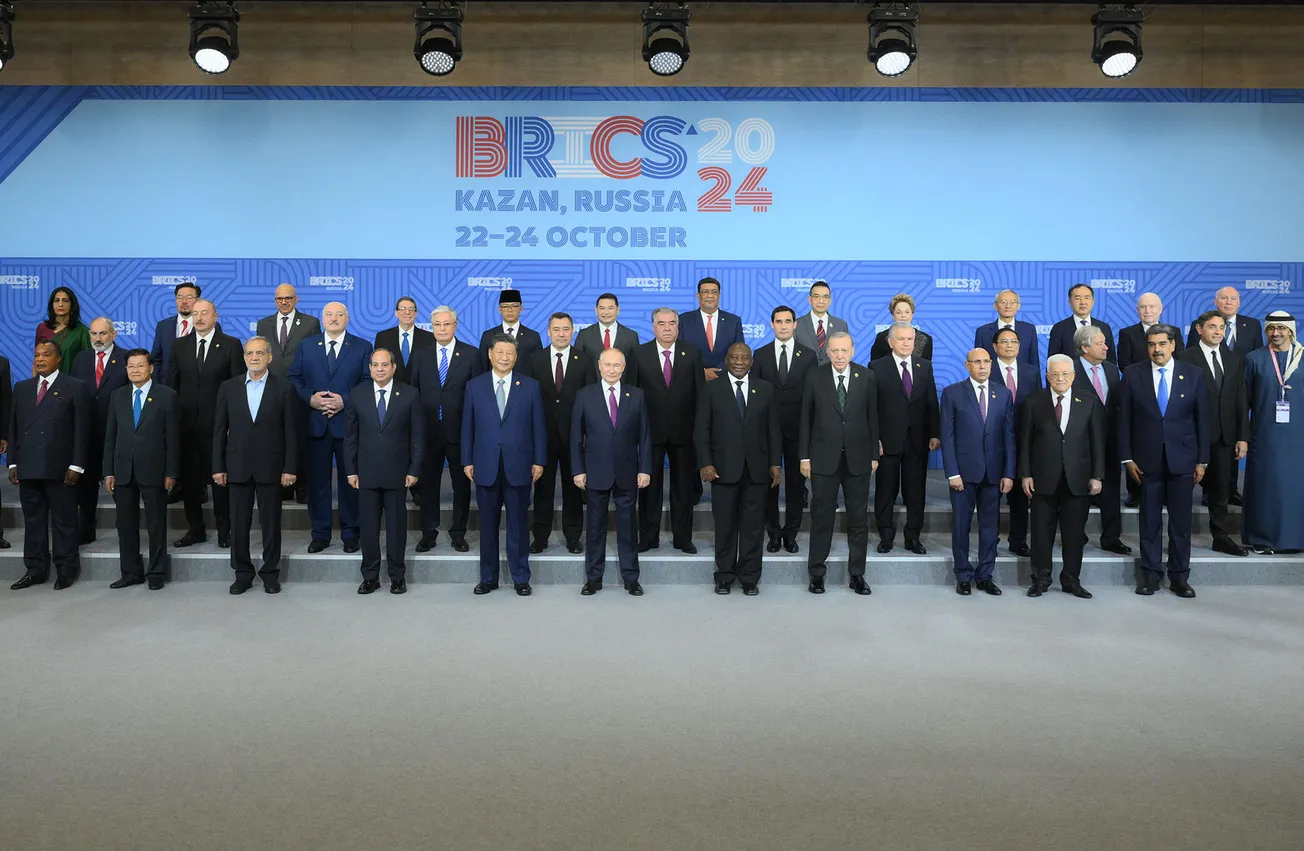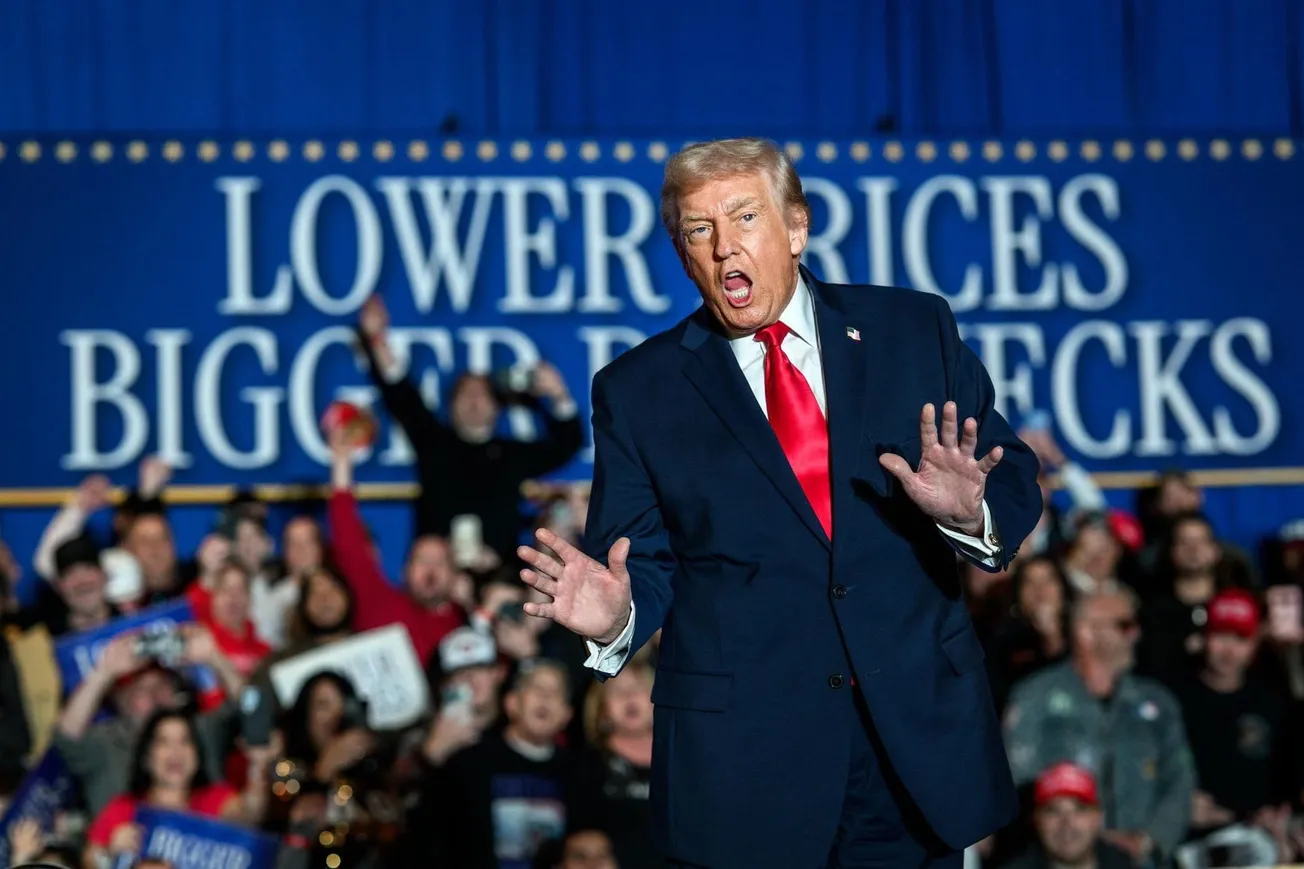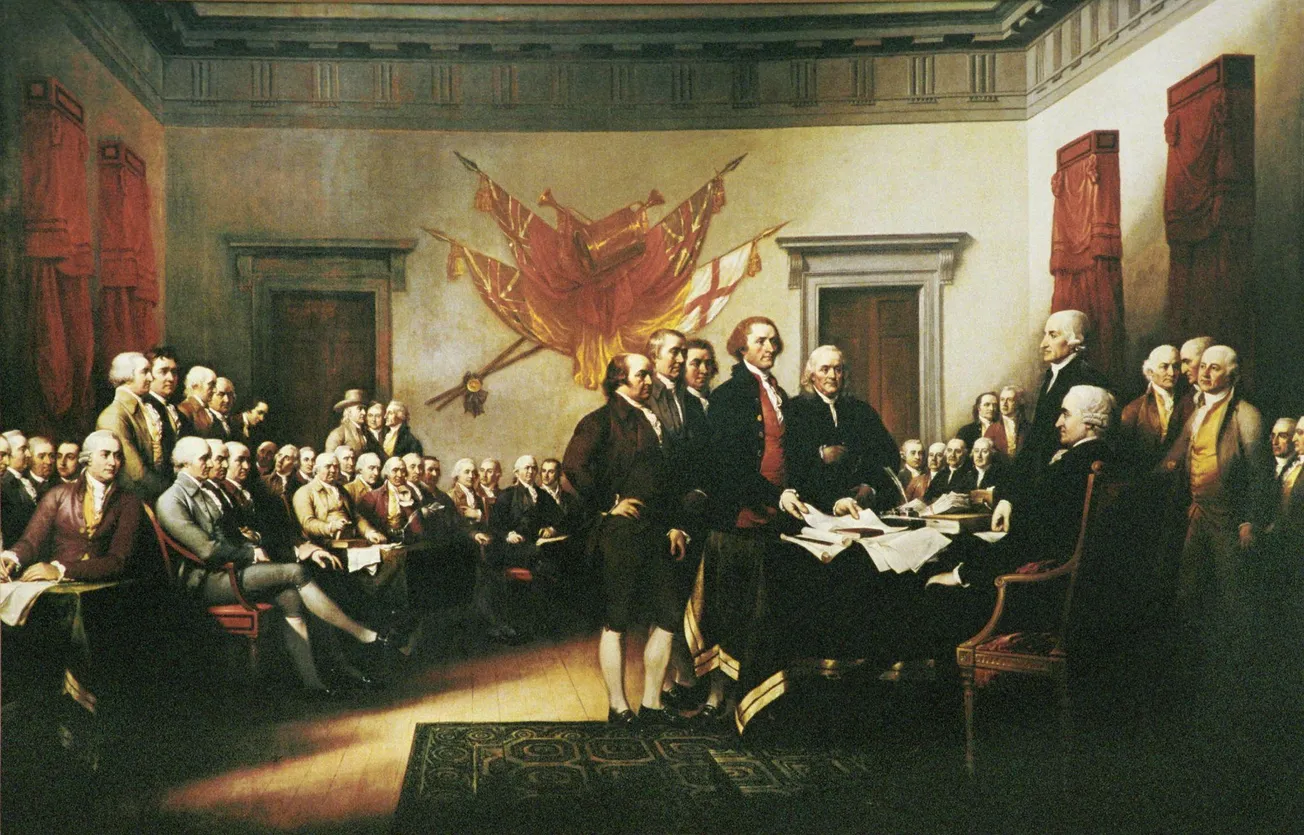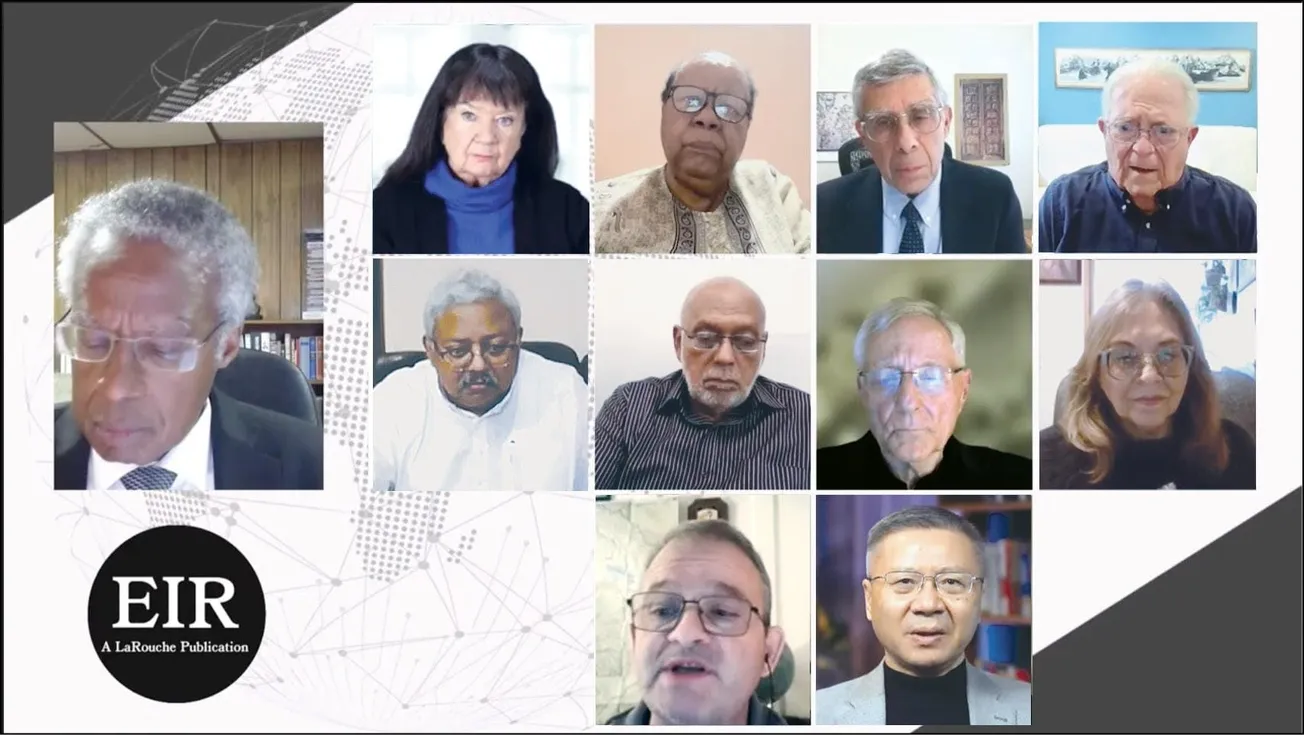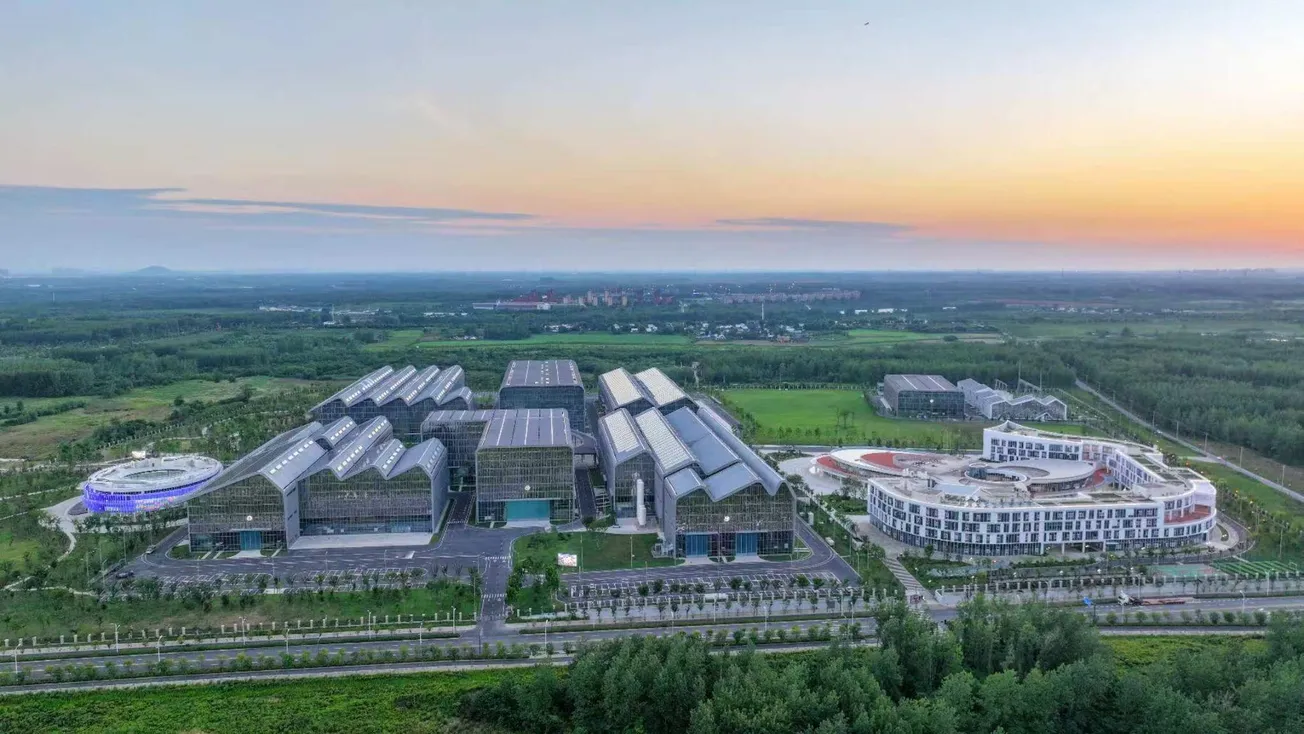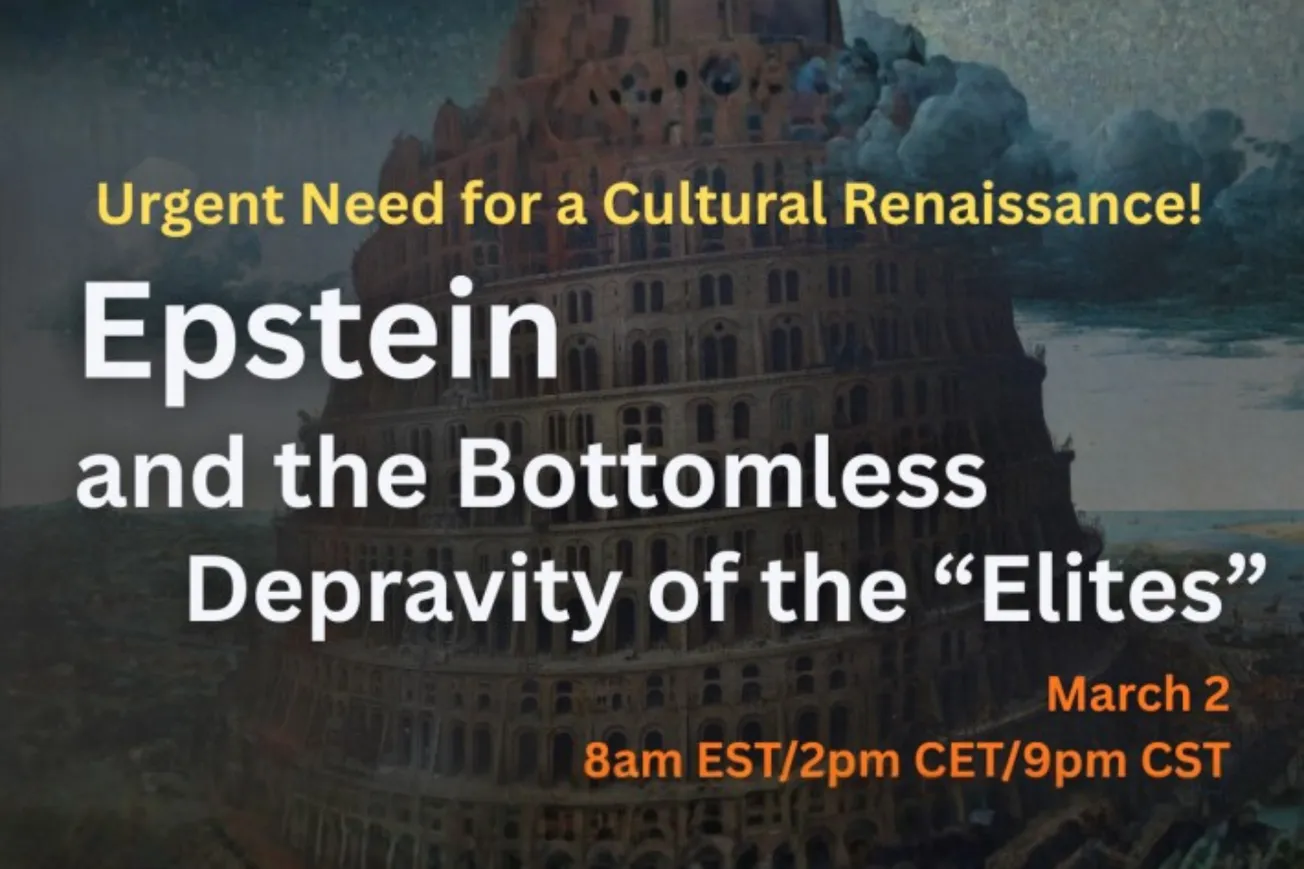Oct. 24—Since its founding in 2009, the BRICS has been steadily picking up momentum for the task of reshaping the global financial and economic architecture to better fit the needs and interests of the non-Western world. While it has experienced this in fits and starts and with many hurdles along the way, this year’s BRICS summit in Kazan, Russia has shown that a substantial and weighty alliance of nations committed to establishing this new era has clearly emerged—to the chagrin of its opponents—and none too soon as the depravity and criminality of what has become of the post–World War II Western system has never been more exposed.
President Vladimir Putin of Russia put it best in his opening remarks to the BRICS member nations on Oct. 23:
We are all witnessing the dynamic growth of BRICS and the strengthening of its authority and influence in global affairs. The BRICS states possess truly immense potential in terms of political power, economy, science, technology, as well as human development. Furthermore, we are united by shared values and a common worldview.
It would be fair to say that BRICS is a group of like-minded sovereign states that represent different continents, development models, religions, and distinctive civilizations and cultures. All our states advocate equality, neighborliness and mutual respect, the assertion of the noble ideals of friendship and harmony, commonwealth and well-being. We have assumed responsibility for the future of the world not in word but in deed. We are exerting a truly beneficial influence on global stability and security and making a substantial contribution to addressing pressing regional problems.
As stated by Putin, the power of BRICS is not that it’s an anti-Western grouping, or anti-anything for that matter, but rather a growing majority of nations that “have assumed responsibility for the future of the world not in word but in deed.” Similarly, Chinese President Xi Jinping, speaking at one of the Kazan meetings Oct. 22, referred to the role of BRICS as serving a “system-forcing process” for a new, nation-serving economic, social and security architecture for the world.
As this news service has repeatedly covered, the current Western “rules-based order” has effectively failed the majority of the human species, having led to a growing income disparity, without economic mobility, and at the same time to the spreading of wars and economic sanctions in numerous failed attempts at conflict management. During his speech to the BRICS session Wednesday, Brazilian President Lula da Silva called the current model “a Marshall Plan in reverse, in which emerging and developing economies finance the developed world.”
The 16th BRICS Summit in Kazan has made it clearer than ever that an alternative world system is being developed, with a primary focus on the creation of a new financial architecture premised on the actual needs of humanity, and a new basis for state-to-state relations which prioritizes peace and sovereignty over ideology. This year’s summit featured attendance by the four newest members of the BRICS: Iran, Egypt, Ethiopia, and the United Arab Emirates. In a very exciting development, it was announced during the proceedings that 13 countries have been officially welcomed as “partner nations” to the BRICS: Algeria, Belarus, Bolivia, Cuba, Indonesia, Kazakhstan, Malaysia, Nigeria, Thailand, Türkiye, Uganda, Uzbekistan, and Vietnam. This means that the BRICS and its partner nations now represent 57% of the world population—with many more nations waiting to join.
To report on the BRICS Summit in Kazan, an EIR team was on the ground following it.
Good morning from Kazan! Today's update:
— Jason Ross (@JasonA_Ross) October 24, 2024
• China–India breakthrough
• EIR questions to top Putin advisor
• BRICS decisions
• what the West should learn pic.twitter.com/ipVemvmzfc
A New Financial Architecture

According to the Chinese news agency Xinhua, President Xi, in his address to the summit, said the urgency of reforming the international financial architecture is becoming increasingly prominent. This has been an explicit subject for the BRICS nations as a whole, as they debate how far and how fast to go in the establishment of a non-dollar-denominated financial system.
During his speech to the summit, President Lula emphasized this point. After noting the failure of the Bretton Woods system, where “financial flows continue to go to rich nations” in what he called “a Marshall Plan in reverse,” Lula called for urgent action to be taken:
Now is the time to move forward in creating alternative means of payment for transactions between our countries. It’s not a question of replacing our currencies. But we must work to ensure that the multipolar order we are aiming for is reflected in the international financial system.
This discussion needs to be tackled with seriousness, caution and technical soundness, but it can no longer be postponed.
One major role in the BRICS-led transformation of the economic architecture is being played by the New Development Bank (NDB), currently headed by former Brazilian President Dilma Rousseff. Speaking at the Wednesday expanded BRICS summit, Rousseff said there are enormous unmet needs in development financing, and that expanding the role of the NDB is an essential condition for addressing this need. The day before, Rousseff had met with President Putin presumably to discuss further details of the creation of such an economic system that can begin to benefit the developing world.

According to the Kremlin readout, Putin commended the accomplishments of the NDB, noting that the Bank has funded about 100 projects since 2018. In response, Rousseff was more critical, saying that the countries of the Global South are in considerable need of financing. However, the NDB’s past funding “remains insufficient relative to the needs of the Global South.” The NDB is dedicated to this issue, she stressed, and added that this will be conducted in national currencies.
Aside from discussions throughout the summit of how to finance trade, productive investment, and conduct currency exchange, concrete plans and projects were discussed which underline the potential that the NDB and the BRICS process represent. Three examples, of many:
• The International North-South Corridor—going from Russia through the Caspian Basin across Iran, to its port of Chabahar on the Arabian Sea—was discussed by Iranian President Masoud Pezeshkian and Indian Prime Minister Narendra Modi during their bilateral meeting. They both stressed this corridor’s benefit to Afghanistan in particular, and all of Central Asia.
• A new BRICS world grain exchange was proposed by President Putin. The BRICS Summit Declaration states (Point 73) that the concept is, “to establish a grain (commodities) trading platform within BRICS (the BRICS Grain Exchange) and to subsequently develop it, including expanding it to other agricultural sectors.”
• The El-Dabaa Nuclear Power Plant project was raised by Egyptian President Abdel Fattah El-Sisi at the Summit. It is now under construction on the Mediterranean coast.
These kinds of nation-serving development projects and the positive multi-national relations involved stand in stark contrast to the delusional “green” policies which are so often promoted by Western nations and institutions, and which are so utterly destructive to any industrial economy. South African President Cyril Ramaphosa, for example, despite saying that South Africa remains committed to a transition to a “low carbon economy,” emphasized that this must not be at the expense of development. “It is essential that climate actions do not deepen global inequality or stifle the developmental aspirations of the Global South,” he said on Wednesday.
A New Paradigm of Peaceful Relations
Another aspect of the BRICS dynamic, which is a clear distinction from the policies of NATO and the Anglosphere, is the insistence on a new policy of peaceful resolution of conflicts—starting with the proxy-war in Ukraine and war raging in Southwest Asia. During his speech to the opening session Oct. 23, President Xi called for de-escalation of the Ukraine war, and immediately ending the Israeli-driven war in Palestine and Lebanon:
We should build a BRICS committed to peace, and we must all act as defenders of common security. We humans are an indivisible community of security. Only by embracing the vision of common, comprehensive, cooperative and sustainable security can we pave the way for universal security.
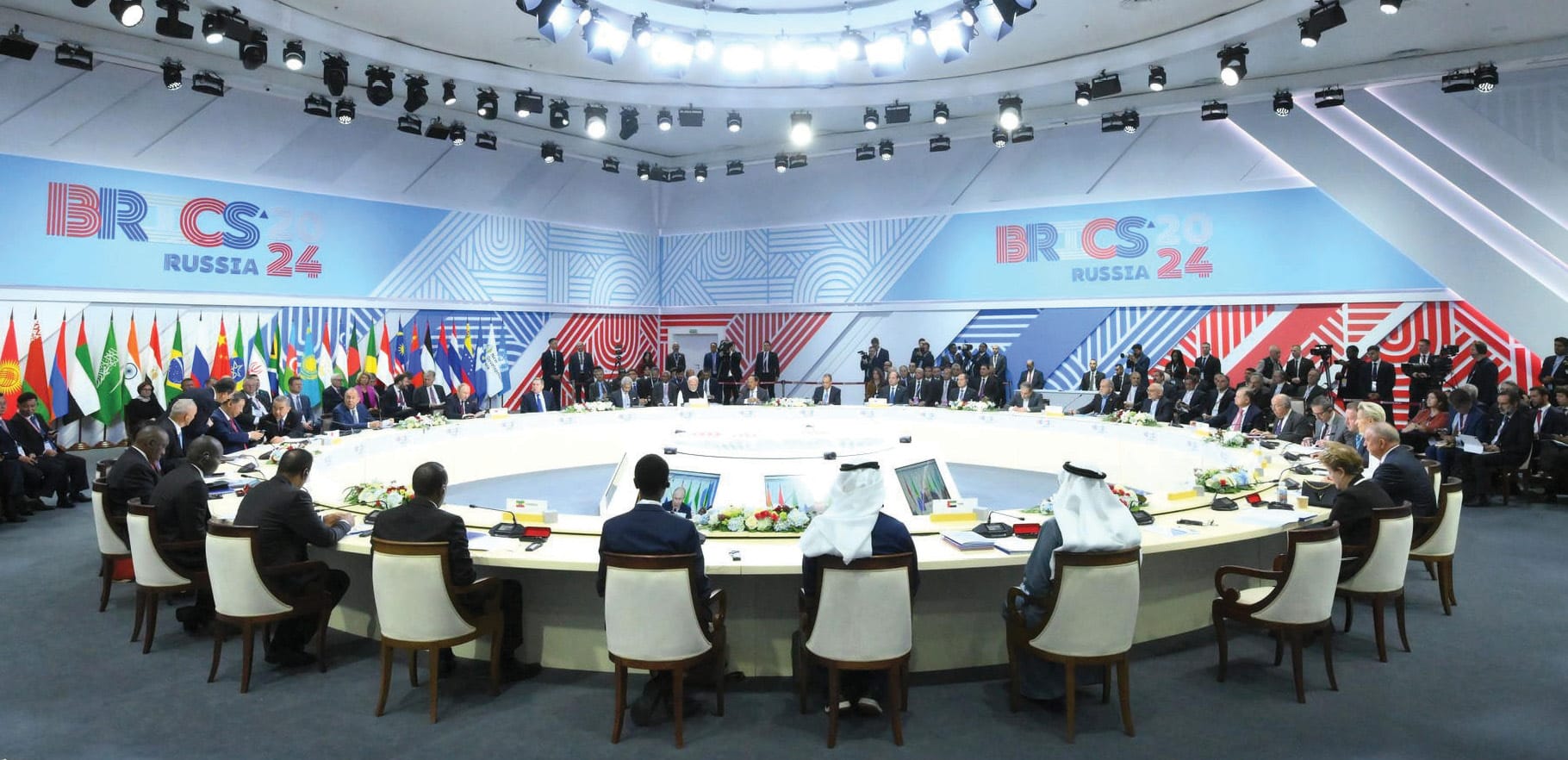
Noting that the Ukraine crisis is still ongoing, Xi spoke about the China-Brazil peace initiative and how they had initiated a “Friends of Peace” group at the UN General Assembly last month in collaboration with many countries from the Global South. “The aim is to gather more voices advocating peace,” he told the group. Xi similarly called for an immediate ceasefire in Gaza and Lebanon and a “lasting resolution of the Palestinian question.”
The reference to the Friends of Peace and the China-Brazil six-point peace proposal is significant as it is an initiative that not only has wide support around the world, but within Russia as well. Kremlin aide Yury Ushakov, in an Oct. 23 interview with Izvestia on the sidelines of the summit, was quoted as saying: “The proposal on Ukraine put forward by China and Brazil had been discussed on the sidelines of the BRICS Summit and it had received broad support.” Spanish news agency EFE also reported that Xi discussed the proposal with President Putin on Oct. 22.
Indian Prime Minister Narendra Modi, speaking on the sidelines of the BRICS summit, reiterated New Delhi’s support for resolving the Ukraine conflict through peaceful means. “We fully support the early restoration of peace and stability,” Modi said, emphasizing the priority India places on human life and its readiness to assist in achieving peace. Modi has already paid visits to both Moscow and Kiev earlier this year in efforts to resolve the conflict.
President Putin’s press spokesman Dmitry Peskov said in response to these developments, “we welcome these efforts,” expressing Russia’s openness to mediators such as India, China, and Brazil in future peace talks with Ukraine.
Lula added his own contribution to this discussion, pointing to the role economic development plays in a new paradigm of peace:
Many insist on dividing the world into friends and enemies. But the most vulnerable are not interested in simplistic dichotomies. What they want is plenty of food, decent work and quality public schools and hospitals with universal access. They want a healthy environment … a life of peace, without weapons that kill innocent people….
At a time when we are facing two wars that have the potential to become global, it is crucial to recover our ability to work together towards common goals.

The issue of the Israeli-Palestinian conflict was also taken up strongly at the summit. This was highlighted by the invitation to Palestinian President Mahmoud Abbas to address the Oct. 24 closing session, which was moderated by President Putin. According to Abbas, obtaining justice for the Palestinian people “is the most important test at this historical moment” and that “It’s high time to stop the injustice and end the practices of military force and prolonging the occupation.” Reflecting the growing importance of BRICS on the world stage, Abbas called for an international peace conference to end the Israeli genocide against the Palestinians, and stated that “We rely on the BRICS’ countries, which have become an influential and decisive force, in establishing the foundations of international peace and security.”
India and China Hold Historic Meeting

Perhaps the most emblematic of this developing dynamic was the meeting held between Narendra Modi and Xi Jinping. In 2020, armed conflict erupted between India and China on their disputed border which has since hampered relations between the two major powers. To the world’s surprise, on Oct. 22, the first day of the summit, the two nations announced a new border agreement that establishes a complete disengagement and restores protocol to the previous 2020 status.
Then the day after, Modi and Xi held their first formal meeting in five years in a major show of an attempt to reestablish friendly relations. Modi posted on X following their meeting: “India-China relations are important for the people of our countries, and for regional and global peace and stability.” According to Xinhua, Xi told Modi that development is now the biggest shared goal of China and India, noting that China and India are each other’s development opportunity rather than threat, and cooperation partners rather than competitors.
At a recent press conference, Putin had reminded people that the BRICS actually originated from the RIC (Russia-India-China) as proposed by former Russian Prime Minister Yevgeny Primakov. While an entirely new dynamic has certainly been born with the additions of South Africa and Brazil—not to mention the four new members added earlier this year—it is hard to imagine the BRICS functioning if India and China were not able to resolve their disputes.
In fact, some enemies of the grouping point this out explicitly. Former Goldman Sachs chief economist Jim O’Neill, who introduced the term “BRIC” but who has gone on to deride the grouping as time has gone by, said during a recent interview with Reuters that it was “very disturbing that they [BRICS] see themselves as some kind of alternative global thing, because it’s obviously not feasible.” “I will take the BRICS group seriously when I see signs that the two countries that really matter—China and India—are actually really trying to agree on things, rather than effectively trying to confront each other all the time,” O’Neill said. This kind of hysteria gives an indication of the significance represented by BRICS and the momentum now underway among a growing portion of the world for a new anti-colonial system.
As Ankit Shah of the Think BRICS YouTube channel told EIR in an interview on the sidelines of the summit:
I believe this is going to be the true starting point of multipolarity in the world, where Kazan will be remembered across the globe for being the starting point. So we are looking at a lot of Global South nations wanting to dig out their ancestral wisdom, which was suppressed during the colonization era….
But we are going into a dangerous zone in the next five years right now, because this is the first time a lot of accumulated military and covert might of the U.S. is unable to figure out what its role is going to be in the new world order.
Shah ended by saying that the process unleashed by BRICS is now bringing to an end the 400-year process of colonialism that started with the British Empire.
EIR’s Exchange with Russian Presidential Advisor Anton Kobyakov
The following is a close paraphrase of the exchange between Russian presidential advisor Anton Kobyakov and EIR’s Sébastien Périmony and Helen Borodina, at the Kazan BRICS summit on Oct. 24.
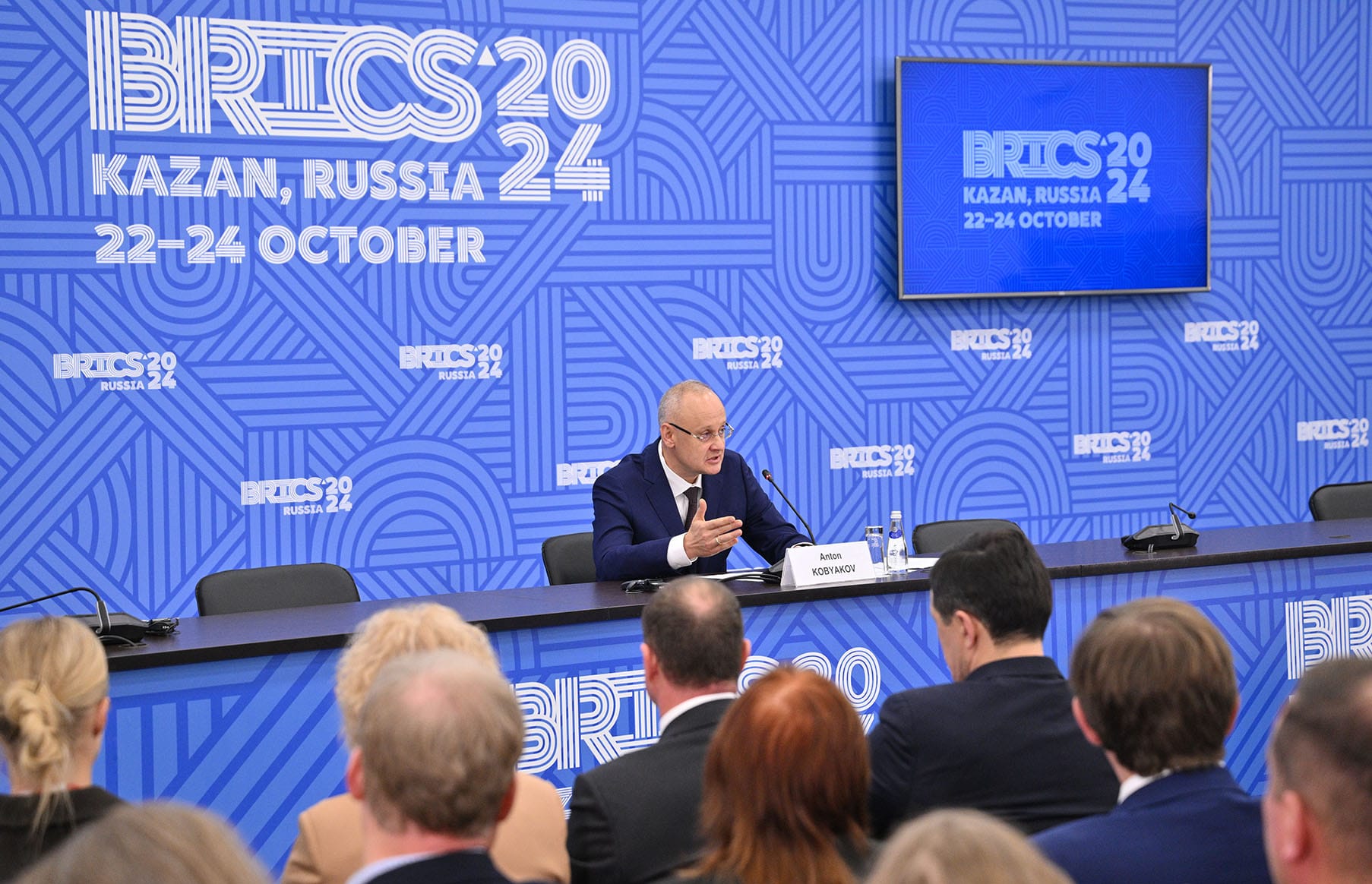
Périmony: Even if the BRICS is not anti-West, the West is currently anti-BRICS. If this does not change, we have the risk of nuclear war in the conflicts occurring in Ukraine and the Middle East, and a perpetuation of sanctions. Do you think the BRICS process will change the outlook of the Anglo-American elites, to participate positively in developing a new security and development architecture, as called for by Helga Zepp-LaRouche of the Schiller Institute?
Kobyakov: We hope the Anglo-American elites will respond positively. But we have a doctrine of nuclear deterrence. When the Pax Americana ends, we hope that the whole world does not go down with it. We are openly saying that we have to be careful in what we say and be responsible in what we do and say.
Borodina: Do you think the BRICS process will deter Israel from launching a strike on Iran that could cause regional and global conflict?
Kobyakov: My thought is that Jews are people with common sense. They have been building their country on the basis of ethnicity, after what happened during World War II. We do not approve of what is happening in the Gaza Strip. We think half or more of Israel does not approve of this action. The question is what will they do? Will they keep their statehood, their sovereignty? Since you ask this question representing a U.S.A. media outlet, I think the U.S. is also questioning whether Israel is on the right track. Maybe after hearing the speeches during the BRICS meetings, they will come to their senses. We hope so.
Borodina: Would you join the International Peace Coalition, the initiative of the LaRouche movement in the U.S.A.?
Kobyakov: Is there such a coalition in the U.S.A.? I have not heard about it, but I will definitely look into it.


